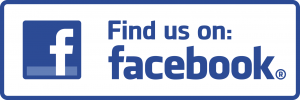Misdirected Beginnings
“Phil, could you come in for a minute?”
I’d heard the door of the study open, and my father wanted to have a talk with me.
I sat across from him as he produced an impressive sheet of paper and placed it in my hands. “Phil,” he said, “this is what we call a stock certificate. It’s very, very important.”
He went on to explain that as long as he held this document, he had proof that he owned something: some piece, or “share,” of a business concern that was engaged in the earning of money. Whenever that company made new dollars, he would get his share, paid out in “dividends.”
This was all new information for me, but I could already see how powerful the concepts were. I could earn money by going outside, mowing the lawn, and getting paid for it—or I could buy into the work of others.
When my father saw I understood that much, he said, “There’s more, son. And this is where it gets exciting. When you receive your dividends—your earnings—what do you do with them?”
I thought I had the right answer. “Put it all in the bank? Save them?”
“Not exactly. You have to buy groceries, right? And pay your bills. So you do that with some of the money. Then, you take the rest of it and look for more shares to buy. And if you’re smart about how you do it, you will generate a stream of income that continues to grow larger. Sort of like running a dairy farm.”
“What?”
He laughed, and took back the stock certificate. “Let’s say for a minute that this is the deed to a cow. It produces milk, and you sell the milk, right? With the proceeds of that milk, you buy another cow. This one produces milk, too, and now you have two streams of revenue. You never sell the cows—until they grow old and stop producing. Healthy cows are your money-makers. Whether it’s milk or oil or cars—anything people can produce and sell—you want to keep buying these shares of business. They give you leverage to buy still more shares. So, if you get a bad cow occasionally, that’s all right, because you have other cows to cover the loss.”
This talk changed the way I viewed the world. I thought about lots of cows giving lots of milk, and making lots of money. Why, everyone could be rich!
No, that wasn’t exactly right. Only buying the right cows, my father explained, would make that possible. So education was critical when it came to equipping myself to enter a highly competitive world of people with the same dreams of cows, cash, property, and natural gas wells. I would have to do my best in the classroom to get the edge, so I could start earning wealth as soon as possible. That wealth would generate greater wealth.
That was the extent of my thinking. I wanted to make money. I thought that was the American Dream. Because when you have enough money, you can do what you want, when you want. And it was working, too. I was on my way to becoming a prosperous man.
But deep down, I realized that accumulation was changing me on the inside, and I didn’t like how. I saw myself as a consumer, but I was the one being quietly consumed.

How has this website helped you?